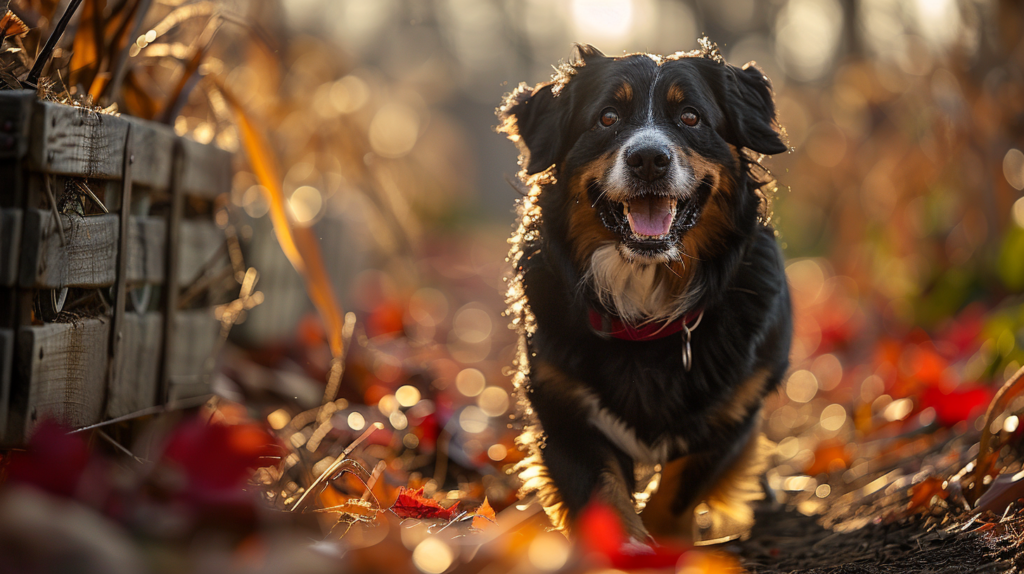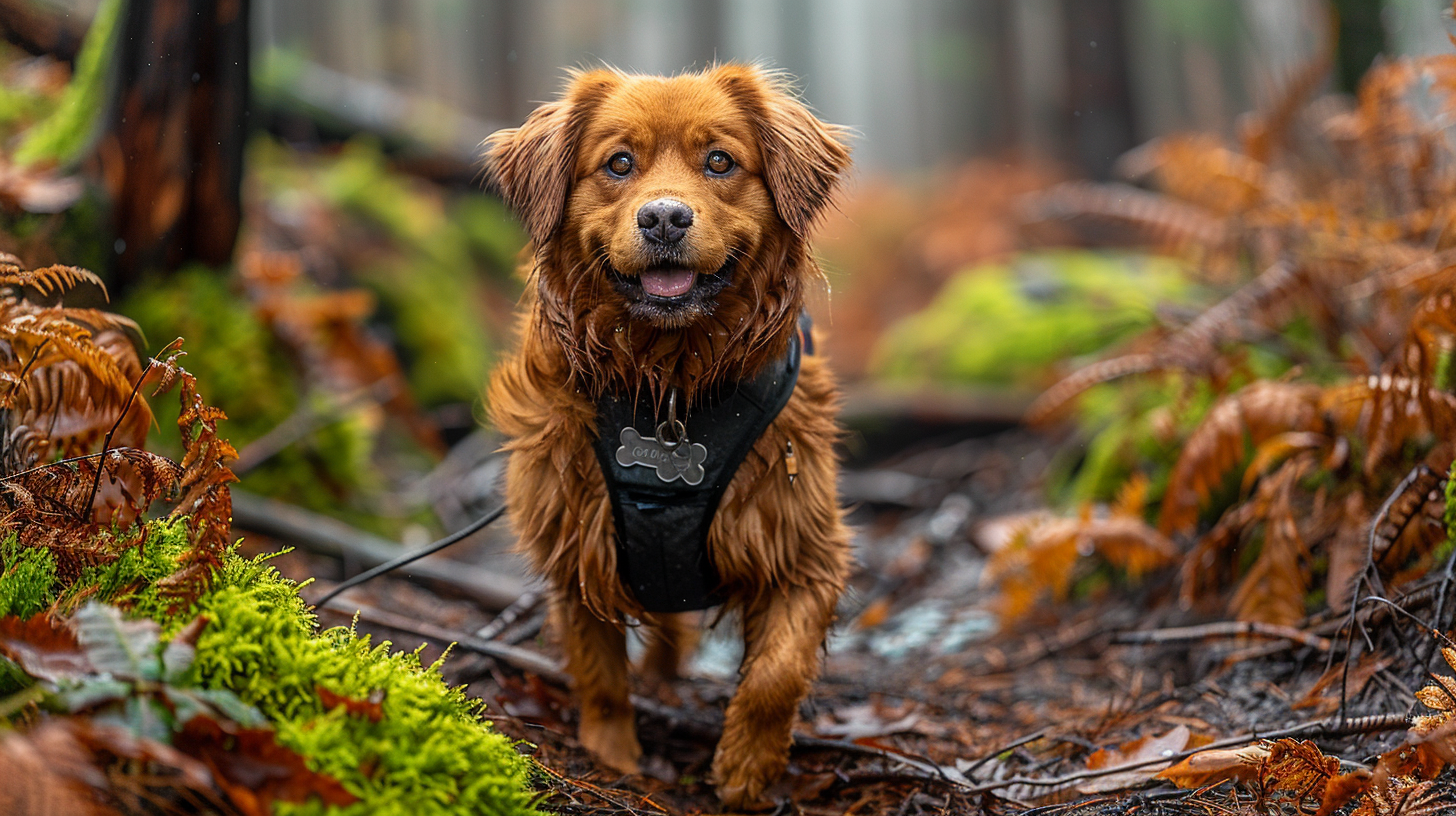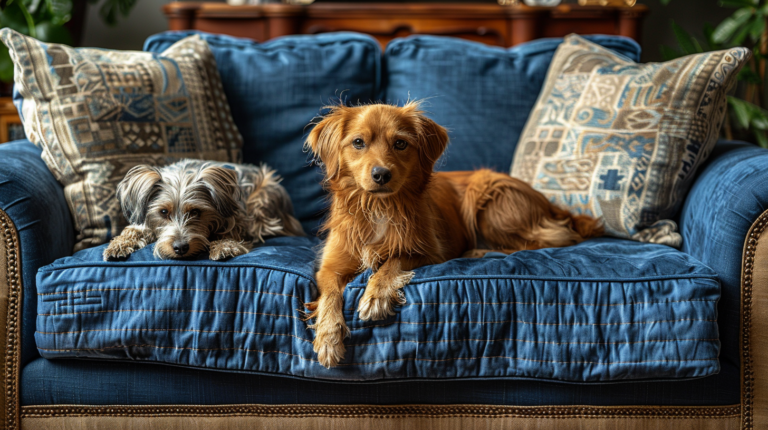Discover essential facts about Bernese Mountain Dogs before adopting. Learn about their temperament, health, grooming needs, and what makes these gentle giants perfect family companions.
Table of Contents
Did you know that Bernese Mountain Dogs were originally bred to drive cattle and pull carts in the Swiss Alps, yet today they’re considered one of the most gentle and family-friendly breeds in the world? These magnificent “Berners,” as they’re affectionately called, capture hearts with their striking tri-colored coats and calm demeanor, but there’s so much more to these gentle giants than meets the eye.
Bernese Mountain Dogs represent one of the four Swiss Sennenhund breeds, each uniquely adapted to mountain life but bred for different purposes. While their imposing size might seem intimidating—males can weigh up to 115 pounds—their temperament is famously sweet and patient, making them exceptional family companions. However, before you fall completely under the spell of their beautiful brown eyes and fluffy coat, there are crucial facts every potential owner should understand about these remarkable dogs.

When I first encountered a Bernese Mountain Dog at a local rescue event in Colorado, I was immediately struck by how this massive dog seemed to have an almost magnetic pull with children. The gentle way he interacted with a nervous toddler, allowing tiny hands to grab his fur while maintaining perfect composure, showed me firsthand why these dogs have such devoted followings among families worldwide.
Whether you’re considering adding a Bernese Mountain Dog to your family or simply curious about this beloved breed, understanding these five essential facts will help you appreciate what makes Berners so special—and what challenges come with loving these gentle giants.
| Age Group | Daily Exercise Needs | Exercise Type | Duration Per Session | Special Considerations |
|---|---|---|---|---|
| Puppy (8-18 months) | Light to Moderate | Controlled walks, supervised play | 15-30 minutes, 2-3 times daily | Avoid jumping, stairs, intense running |
| Adult (18 months – 7 years) | Moderate | Daily walks, hiking, swimming | 45-60 minutes total | Can handle longer activities |
| Senior (7+ years) | Light to Moderate | Gentle walks, mental stimulation | 20-40 minutes, 2 times daily | Joint-friendly activities only |
1. Bernese Mountain Dogs Have a Surprisingly Short Lifespan
One of the most heartbreaking realities about Bernese Mountain Dogs is their relatively short life expectancy. While most large dog breeds live 10-12 years, Berners typically live only 6-8 years, with some exceptional individuals reaching 10 years. This shortened lifespan is primarily due to their predisposition to certain health conditions, particularly cancer.
According to the Bernese Mountain Dog Club of America, approximately 50% of Berners will develop some form of cancer during their lifetime. Histiocytic sarcoma, a particularly aggressive cancer, affects this breed at much higher rates than other dogs. Additionally, Bernese Mountain Dogs are prone to elbow and hip dysplasia, bloat (gastric dilatation-volvulus), and heart conditions.
What This Means for Owners
Understanding this reality helps potential owners make informed decisions about:
- Health insurance considerations: Premium pet insurance becomes more valuable given the breed's health predispositions
- Emotional preparedness: Knowing you may have a shorter time with your companion helps you cherish every moment
- Breeding selection: Choosing reputable breeders who health test their breeding stock becomes crucial
Warning Signs to Watch For
- Unusual lumps or bumps that appear suddenly
- Difficulty breathing or excessive panting
- Limping or reluctance to exercise
- Bloated stomach or unsuccessful attempts to vomit
- Sudden behavioral changes or lethargy
When to Consult a Vet: Any sudden changes in your Berner's behavior, appetite, or mobility warrant immediate veterinary attention. Early detection significantly improves outcomes for most health conditions.
2. These Gentle Giants Were Actually Working Dogs
Despite their reputation as couch potatoes, Bernese Mountain Dogs were originally bred as versatile working dogs in the Swiss countryside. These impressive canines were developed to drive cattle, pull carts loaded with milk and cheese to market, and guard farms in the Bernese region of Switzerland.
Their strong, sturdy build—with males weighing 80-115 pounds and females 70-95 pounds—made them ideal for pulling heavy loads across mountainous terrain. The breed nearly went extinct in the early 1900s but was revived through careful breeding programs that preserved their working heritage while developing their gentle temperament.
Modern Working Capabilities
Today's Bernese Mountain Dogs retain many of their working instincts:
- Draft work: Many Berners still enjoy pulling carts and wagons
- Therapy work: Their calm, intuitive nature makes them excellent therapy dogs
- Search and rescue: Some participate in wilderness search and rescue operations
- Competitive sports: They excel in activities like carting, weight pulling, and obedience
Exercise Requirements by Life Stage
Understanding their working background helps explain their moderate exercise needs. Unlike high-energy breeds, Berners prefer steady, consistent activity rather than intense bursts of exercise.
Expert Tip: Start draft training early if interested. Many Berners naturally take to pulling, and it provides excellent physical and mental stimulation while honoring their heritage.
Common Health Conditions in Bernese Mountain Dogs
| Health Condition | Prevalence in Breed | Early Warning Signs | Prevention Strategies | Treatment Options |
|---|---|---|---|---|
| Hip Dysplasia | 15-20% | Limping, difficulty rising, "bunny hopping" gait | Health testing parents, maintain healthy weight | Surgery, physical therapy, pain management |
| Elbow Dysplasia | 10-15% | Front leg lameness, stiffness after rest | Genetic screening, controlled exercise | Anti-inflammatories, surgery in severe cases |
| Histiocytic Sarcoma | 25% lifetime risk | Rapidly growing lumps, lethargy, loss of appetite | No known prevention, early detection key | Chemotherapy, surgery, palliative care |
| Bloat (GDV) | 5-10% | Distended abdomen, retching without vomiting, restlessness | Slow feeding, avoid exercise after meals | Emergency surgery required |
3. Grooming Requirements Are More Intensive Than You Think
The stunning tri-colored coat that makes Bernese Mountain Dogs so visually appealing comes with significant grooming responsibilities. Their double coat consists of a soft, woolly undercoat and a longer, coarser outer coat that sheds year-round, with particularly heavy shedding seasons twice per year.
During shedding season, which typically occurs in spring and fall, Berners can lose enough fur to create what owners jokingly call "tumbleweeds" of hair around the house. Regular grooming isn't just about aesthetics—it's essential for skin health, temperature regulation, and reducing allergens in your home.
Daily and Weekly Grooming Needs
Daily Requirements:
- Quick brush-through to prevent matting (5-10 minutes)
- Check and clean eyes to prevent tear staining
- Monitor for debris in ears and between toe pads
Weekly Requirements:
- Thorough brushing session (30-45 minutes)
- Nail trimming or grinding
- Teeth brushing
- Bath as needed (typically every 4-6 weeks)
Professional Grooming Considerations
Many Bernese Mountain Dog owners find professional grooming every 6-8 weeks beneficial, especially during shedding seasons. Professional groomers can:
- Properly de-shed the undercoat using specialized tools
- Trim sanitary areas and feet for hygiene
- Express anal glands if needed
- Provide nail grinding and ear cleaning
Common Mistake: Never shave a Berner's coat completely. Their double coat provides natural temperature regulation, and shaving can actually make them hotter and more prone to sunburn.
4. Temperament Makes Them Ideal Family Dogs (With Caveats)
Bernese Mountain Dogs are renowned for their gentle, friendly temperament that makes them exceptional family companions. They're often described as having an almost human-like emotional intelligence, seeming to sense when family members need comfort or when situations require calm behavior.
These dogs typically exhibit:
- Patience with children: Berners are famously tolerant of young children's behavior
- Gentle nature: Despite their size, they rarely show aggression
- Loyalty: They form strong bonds with their families
- Social tendencies: Most Berners enjoy meeting new people and dogs
The Reality of Living with a Gentle Giant
However, their size and temperament combination creates unique challenges:
Space Requirements: While Berners don't need huge amounts of exercise, they do need adequate space to move comfortably. A 100-pound dog taking up residence on your couch is a significant consideration.
Strength Awareness: Even a gentle, well-trained Berner can accidentally knock over small children or elderly family members simply by being enthusiastic about greetings.
Heat Sensitivity: Their thick double coat makes them prone to overheating, requiring climate-controlled environments during hot weather.
Training Considerations
Bernese Mountain Dogs are intelligent but can be somewhat stubborn, particularly during adolescence (12-24 months). Key training principles include:
- Start early: Puppy socialization classes are crucial
- Positive reinforcement: These sensitive dogs respond best to reward-based training
- Consistency: All family members must enforce the same rules
- Patience: Berners mature slowly, both physically and mentally
Expert Tip: Focus heavily on leash training and recall commands. A 100-pound dog that pulls on leash or doesn't come when called can become dangerous quickly.
Annual Cost Breakdown for Bernese Mountain Dogs
| Life Stage | Monthly Food Cost | Annual Vet Costs | Grooming Costs | Insurance Premiums | Miscellaneous | Total Annual Cost |
|---|---|---|---|---|---|---|
| Puppy (0-18 months) | $80-120 | $800-1,200 | $300-500 | $600-1,000 | $400-600 | $2,880-4,920 |
| Adult (18 months - 7 years) | $70-100 | $400-800 | $400-600 | $700-1,200 | $300-500 | $2,640-4,200 |
| Senior (7+ years) | $60-90 | $1,000-2,500 | $300-500 | $900-1,500 | $400-700 | $3,420-6,370 |
*Costs vary by location, dog size, and individual health needs. Emergency veterinary costs not included.
5. The True Cost of Ownership Goes Beyond the Purchase Price
Many people focus on the initial cost of purchasing a Bernese Mountain Dog—typically $1,200-$3,000 from reputable breeders—but the lifetime financial commitment extends far beyond that initial investment. The combination of their size, health predispositions, and grooming needs makes Berners one of the more expensive dog breeds to own.
Breakdown of Annual Costs
Food and Nutrition: Large dogs eat substantially more than smaller breeds. A Bernese Mountain Dog typically consumes 4-6 cups of high-quality dry food daily, translating to $70-120 monthly in food costs alone.
Veterinary Care: Given their health predispositions, routine veterinary care often runs higher than average. Annual wellness exams, vaccinations, and preventive care typically cost $400-800 for healthy adult dogs, but can easily reach $1,000-2,500+ annually for seniors or dogs with health issues.
Grooming Expenses: Professional grooming every 6-8 weeks, plus supplies for at-home maintenance, averages $300-600 annually. During heavy shedding seasons, many owners increase grooming frequency.
Pet Insurance Considerations: Given the breed's cancer predisposition and potential for expensive treatments, many owners find comprehensive pet insurance valuable. Annual premiums typically range from $600-1,500 depending on coverage levels.
Hidden Costs Many Owners Don't Consider
- Home modifications: Dog gates, ramps for older dogs, reinforced fencing
- Travel expenses: Larger dogs require bigger accommodations, special airline arrangements
- Emergency fund: Cancer treatments can cost $3,000-15,000+
- Quality of life expenses: Orthopedic beds, supplements for joint health, cooling mats for hot weather
For more expert pet care tips and product recommendations, visit BlithePet.com — your trusted source for pet wellness.
Expert Tips for Prospective Bernese Mountain Dog Owners
8 Essential Tips Before Bringing Home Your Berner
- Choose Your Breeder Carefully: Research breeders who perform comprehensive health testing including hip/elbow scoring, eye clearances, and cardiac evaluations. Ask to see test results for both parents.
- Puppy-Proof for Giants: Standard puppy-proofing isn't enough. Berners grow quickly and can reach countertops by 4-5 months. Secure all food, medications, and small objects well out of reach.
- Invest in Quality Nutrition Early: Large breed puppies require specific nutrition to support proper growth rates. Feeding adult food too early or allowing rapid weight gain can contribute to developmental orthopedic diseases.
- Establish Exercise Boundaries: While Berners need daily exercise, over-exercising puppies can damage developing joints. Follow the "5 minutes per month of age, twice daily" rule until 18 months.
- Create Climate Control Plans: Bernese Mountain Dogs overheat easily. Ensure access to air conditioning during summer months and never leave them in cars, even briefly.
- Budget for Professional Training: Their size makes professional training investment worthwhile. Group classes provide socialization while addressing basic obedience and leash manners.
- Prepare for Separation Anxiety: Berners bond strongly with families and can develop separation anxiety. Gradual crate training and independence building prevent destructive behaviors.
- Build Your Support Network: Connect with local Bernese Mountain Dog clubs, find a veterinarian experienced with the breed, and establish relationships with professional groomers familiar with double coats.
Warning Signs That Require Immediate Veterinary Attention
Bernese Mountain Dogs can be stoic about pain, making it crucial to recognize subtle signs of distress:
- Bloat symptoms: Distended abdomen, restlessness, unsuccessful vomiting attempts, excessive drooling
- Breathing difficulties: Open-mouth breathing at rest, blue-tinged gums, exercise intolerance
- Sudden behavior changes: Hiding, aggression, loss of appetite, excessive vocalization
- Mobility issues: Limping, reluctance to climb stairs, difficulty rising from lying down
- Rapid growth of lumps: Any new masses or existing lumps that change size quickly
When to Consult a Vet: Don't wait for symptoms to worsen with Berners. Their shortened lifespan means early intervention often makes the difference between successful treatment and poor outcomes.
Common Mistakes to Avoid with Bernese Mountain Dogs
Nutrition and Exercise Mistakes
Overfeeding puppies: Rapid growth stresses developing joints. Follow feeding guidelines strictly and monitor body condition weekly.
Ignoring heat sensitivity: Many owners underestimate how quickly Berners overheat. Symptoms include excessive panting, drooling, and seeking cool surfaces.
Skipping socialization: Large dogs that aren't properly socialized become management problems. Expose your Berner to various people, animals, and situations during the critical socialization period (8-16 weeks).
Health Management Mistakes
Delaying health screenings: Waiting for symptoms to appear before health testing misses the prevention window. Annual screenings should begin by age 2.
Assuming insurance isn't necessary: Given the breed's cancer predisposition, many owners regret not purchasing comprehensive insurance early when premiums are lowest.
Myth-Busting: Common Misconceptions About Bernese Mountain Dogs
Myth 1: "Berners are just oversized lap dogs"
Reality: While affectionate, Bernese Mountain Dogs were bred for work and retain strong instincts. They need mental stimulation and purposeful activities, not just cuddle time.
Myth 2: "Their short lifespan isn't worth the heartbreak"
Reality: Many Berner owners say the intense loyalty and joy these dogs bring makes every year precious. Quality of life often matters more than quantity.
Myth 3: "They don't need much exercise because they're calm"
Reality: Berners need consistent, moderate exercise to maintain joint health and prevent obesity. A sedentary lifestyle actually shortens their already brief lifespan.
Step-by-Step Guide: Preparing Your Home for a Bernese Mountain Dog
Before Arrival (4-6 weeks prior)
Week 1-2: Safety and Space Preparation
- Install baby gates to restrict access to stairs (important for growing puppies)
- Secure kitchen cabinets and pantry areas
- Remove or elevate toxic plants, especially those attractive to curious puppies
- Create a designated "Berner zone" with orthopedic bedding
Week 3-4: Equipment and Supply Shopping
- Purchase appropriately sized crates (adults need 54-inch crates minimum)
- Buy heavy-duty leashes and collars designed for large breeds
- Stock up on high-quality large breed puppy food
- Invest in professional grooming tools: slicker brush, undercoat rake, nail clippers
Week 5-6: Professional Relationships
- Research and interview veterinarians experienced with large breeds
- Contact professional groomers and schedule initial appointments
- Enroll in puppy socialization classes
- Research pet insurance options and apply before bringing puppy home
First Month Home
Days 1-7: Establishment Phase
- Maintain consistent feeding schedules (3-4 times daily for puppies)
- Begin crate training immediately with positive associations
- Start basic commands: name recognition, sit, come
- Limit exciting activities to prevent overstimulation
Days 8-21: Routine Building
- Introduce short leash walks (5-10 minutes initially)
- Begin handling exercises: paws, ears, mouth examination
- Start basic grooming routines
- Schedule first veterinary wellness exam
Days 22-30: Socialization and Training
- Attend first puppy classes
- Introduce to various surfaces, sounds, and experiences
- Practice basic commands in different locations
- Establish exercise routines appropriate for age
Long-term Success Strategies
Monthly Health Monitoring:
- Weight checks and body condition scoring
- Joint mobility assessments
- Coat and skin condition evaluation
- Behavioral pattern documentation
Quarterly Professional Care:
- Veterinary wellness exams
- Professional grooming sessions
- Training class evaluations
- Insurance and budget reviews
FAQ Section :
Frequently Asked Questions About Bernese Mountain Dogs
Conclusion
Bernese Mountain Dogs represent a unique combination of gentle temperament, striking beauty, and devoted companionship that makes them beloved family members worldwide. However, their shortened lifespan, specific health considerations, substantial grooming needs, and significant financial commitment require careful consideration before bringing one home.
These gentle giants aren't suitable for every family situation, but for those who can provide appropriate care, space, and resources, Berners offer unmatched loyalty and affection. Their patient nature with children, calm demeanor, and intuitive emotional intelligence create bonds that many owners describe as life-changing.
Remember that responsible ownership begins with choosing health-tested breeding stock from reputable breeders, establishing relationships with experienced veterinarians, and preparing both financially and emotionally for the unique joys and challenges of loving a Bernese Mountain Dog.
The decision to welcome a Berner into your family shouldn't be taken lightly, but for those willing to provide the care these magnificent dogs deserve, the rewards are immeasurable. Their gentle souls and unwavering devotion create memories that last long beyond their too-brief time with us.
Have a similar experience with your pet? Share it in the comments below! Don't forget to check out our other helpful guides at BlithePet.com.






